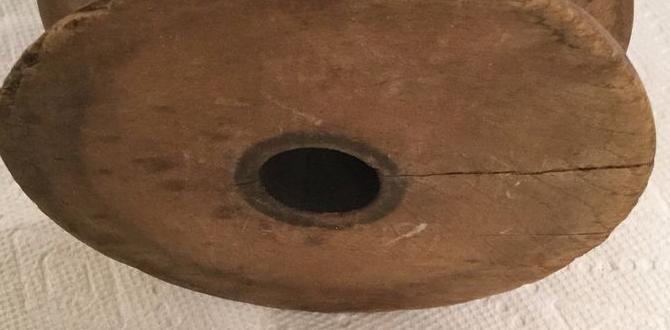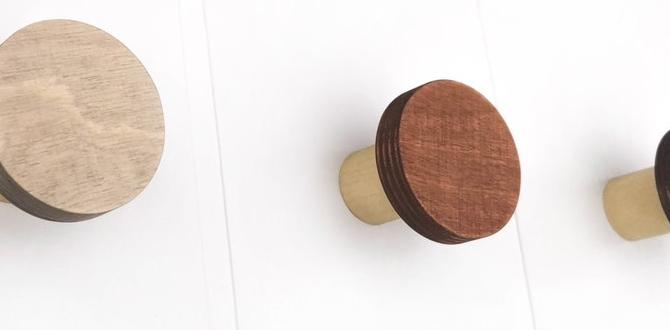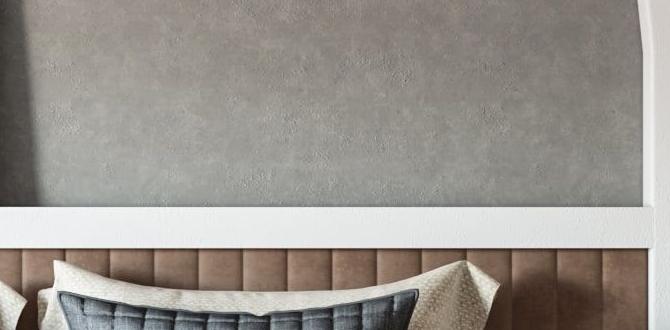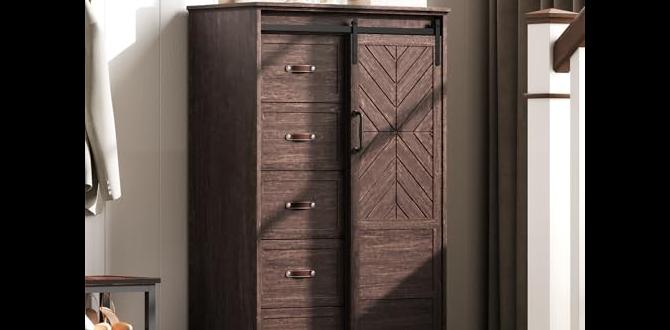Have you ever walked into a room and admired the beautiful wooden floors? Solid hardwood can add warmth and charm to your home. But did you know there are solid hardwood pros and cons to consider?
Choosing the right flooring is essential. It can affect how your space feels and operates. For many, solid hardwood seems like the perfect choice. But is it right for everyone? In this article, we’ll explore the benefits and drawbacks of solid hardwood.
Picture this: your friends come over for a party, and everyone admires your gorgeous floors. That’s a great feeling, right? However, what happens when a drink spills? We’ll dive into those kinds of situations.
Fun fact: solid hardwood lasts a long time if taken care of properly. But upkeep can be tricky. Let’s find out if the beauty of solid hardwood is worth the effort. Join us as we uncover the solid hardwood pros and cons!
Table of Contents
Solid Hardwood Pros And Cons: The Truth About Flooring Choices Solid Hardwood Flooring Is A Popular Choice For Many Homeowners Due To Its Timeless Beauty And Durability. However, Like Any Flooring Option, It Comes With Its Own Set Of Advantages And Disadvantages. In This Article, We Will Explore The Solid Hardwood Pros And Cons To Help You Make An Informed Decision About Whether It’S The Right Fit For Your Home. Pros Of Solid Hardwood 1. **Durability**: Solid Hardwood Floors Are Known For Their Longevity. When Properly Maintained, They Can Last For Several Decades, Making Them A Worthwhile Investment. 2. **Beauty And Aesthetics**: The Natural Beauty Of Hardwood Adds Warmth And Character To Any Room. It’S Available In A Variety Of Wood Species, Colors, And Grain Patterns, Allowing Homeowners To Find The Perfect Match For Their Decor. 3. **Increases Home Value**: Homes With Hardwood Flooring Typically Have A Higher Resale Value. Potential Buyers Often Prioritize These Floors, Viewing Them As A Premium Feature. 4. **Easy To Refinish**: If Your Hardwood Floor Shows Wear And Tear Over Time, It Can Be Sanded Down And Refinished, Which Helps To Restore Its Original Shine And Prolong Its Life. 5. **Natural Insulator**: Wood Is A Natural Insulator, Which Can Help Regulate Indoor Temperature And Reduce Energy Costs. Cons Of Solid Hardwood 1. **Cost**: Solid Hardwood Floors Can Be More Expensive Than Other Flooring Options, Both In Terms Of Material And Installation Costs. 2. **Susceptible To Moisture**: These Floors Can Warp Or Buckle If Exposed To Excessive Moisture, Making Them Less Ideal For Areas Prone To Humidity, Like Bathrooms And Basements. 3. **Scratch And Dent Risk**: While Durable, Hardwood Can Scratch And Dent More Easily Than Some Modern Flooring Alternatives. Pet Claws And Heavy Furniture May Leave Marks. 4. **Maintenance Required**: Solid Hardwood Requires Regular Maintenance, Including Refinishing And Occasional Waxing To Keep It Looking Its Best. 5. **Noise**: Hardwood Floors Can Be Noisy, Especially In Multi-Story Homes. Some Homeowners Find Them To Be Louder Compared To Carpeting Or Other Soft Flooring Materials. Conclusion When Considering Solid Hardwood Flooring, It’S Essential To Weigh The Pros And Cons. While The Beauty And Durability Of Hardwood Are Often Appealing, The Costs And Maintenance Should Not Be Overlooked. Understanding Your Lifestyle, Budget, And The Specific Needs Of Your Home Will Help You Make The Best Decision In Choosing The Right Flooring Option.
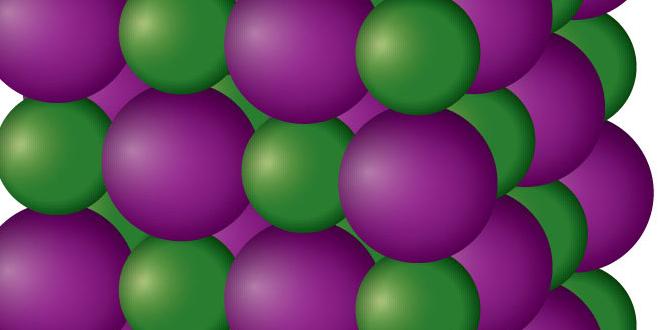
Solid Hardwood Pros and Cons
Solid hardwood floors add beauty to any home. They offer durability and can last for decades if cared for properly. However, they can be expensive to install. You might be surprised to learn they are sensitive to humidity. This means they can expand or contract, leading to gaps. On the bright side, solid hardwood can be refinished multiple times, restoring its shine! Weigh these pros and cons to decide if it’s the right choice for your space.What is Solid Hardwood?
Definition and characteristics of solid hardwood.. Common types of solid hardwood used in flooring and furniture..Solid hardwood is wood made from a single piece of timber. This type of wood is strong and durable, perfect for flooring and furniture. Unlike engineered wood, it can be sanded and refinished many times.
- Popular types include:
- Oak
- Maple
- Cherry
- Walnut
These woods are known for their beautiful grain and rich colors. Solid hardwood adds warmth and value to any space.
What are the advantages of solid hardwood?
Solid hardwood is durable, long-lasting, and easy to repair. It can last for generations with proper care.
What are the disadvantages of solid hardwood?
It is usually more expensive than other flooring options. Solid hardwood can also be sensitive to moisture, which may cause it to warp.
Pros of Solid Hardwood
Durability and longevity benefits.. Aesthetic appeal and variety in design..Solid hardwood floors offer many great benefits. They last a long time and resist wear and tear. This means they can handle busy homes with kids and pets. Solid hardwood looks beautiful too. You can find many colors and styles to match any room. From rich oak to light maple, there is a choice for everyone. You will love the unique wood grain that adds character to any space.
- Durability: Solid hardwood can last for decades.
- Aesthetic appeal: Available in various designs and colors.
What are the durability benefits of solid hardwood?
Solid hardwood is very strong and long-lasting. It can last up to 100 years with proper care. This makes it a great investment for your home.
Why is aesthetic appeal important?
The look of your home matters. Solid hardwood floors create a warm and inviting atmosphere. They can match any style or theme, making your home feel complete.
Cons of Solid Hardwood
Cost considerations and investment comparison.. Susceptibility to changes in humidity and temperature..Solid hardwood can be fancy, but it comes with some downsides. First, the price can make your wallet cry. It usually costs more than carpet or laminate, so be ready to shell out some cash. You might feel like you bought a small car! Humidity and temperature are tricky too. They can make your beautiful floor swell or shrink, which isn’t a good look. Keeping it in tip-top shape can be like training a pet—lots of work! Here’s a quick comparison:
| Consideration | Solid Hardwood | Other Options |
|---|---|---|
| Cost | High | Lower |
| Humidity | Can warp | More stable |
Maintenance of Solid Hardwood
Routine care practices to enhance longevity.. Repairing scratches and damage options..Taking care of solid hardwood is like nurturing a plant; a little care goes a long way! Regular sweeping or vacuuming helps keep dust off. A damp mop can give it a nice shine, but no soaking it like a sponge in a pool! If you see scratches, don’t panic. You can use a simple wood marker or rub in some walnut to hide those pesky marks.
| Care Tips | Description |
|---|---|
| Dust Regularly | Use a broom or vacuum to keep dirt away. |
| Damp Mopping | Use a slightly wet mop to avoid soaking. |
| Repair Scratches | Use wood markers or a walnut to cover them up. |
With a few easy practices, you can keep your hardwood looking great! Remember, it’s easier to prevent damage than to fix it later, or your floor might just start auditioning for a role in a horror movie!
Environmental Impact of Solid Hardwood
Sustainability of sourcing hardwood.. Comparison with other flooring options regarding environmental effects..When it comes to hardwood, sustainability is key. Trees used for solid hardwood can take decades to grow. But with careful management, forests keep our air fresh and our planet healthy. Unlike carpet or vinyl, which can be made from petroleum, hardwood comes from renewable sources. Plus, it lasts a long time! You won’t have to replace it every few years. Take a look at this table for a fun comparison:
| Type of Flooring | Renewability | Longevity |
|---|---|---|
| Solid Hardwood | High | 50+ years |
| Carpet | Low | 5-10 years |
| Vinyl | Very Low | 10-20 years |
So, while solid hardwood is friendly to our planet, it’s easy on our feet too! It’s no wonder people love it.
Comparing Solid Hardwood to Alternatives
Differences between solid hardwood and engineered hardwood.. Pros and cons of laminate vs. solid hardwood..Solid hardwood and engineered hardwood differ in material and structure. Solid hardwood comes from one piece of wood, while engineered hardwood has layers of wood. This makes engineered wood more stable in moisture.
Laminate flooring is another option, but it’s made from synthetic materials, not real wood. Here are some pros and cons:
- Solid Hardwood: Long-lasting and can be refinished.
- Engineered Hardwood: More resistant to moisture and cheaper.
- Laminate: Easy to install and very affordable.
- Cons of Laminate: Less durable and cannot be refinished.
Think about your needs before choosing the right floor. What looks good and lasts long is essential! Would you like a cozy feel, or do you need something tough for busy areas?
What are the main differences between solid hardwood and engineered hardwood?
Solid hardwood is a single piece of wood, while engineered hardwood has layers that give it better stability.
What are the pros and cons of laminate flooring compared to solid hardwood?
Laminate is cheaper and easy to install, but it lacks the warmth and durability of solid hardwood.
Ideal Use Cases for Solid Hardwood
Best scenarios and environments for installation.. Recommendations for homeowners vs. commercial spaces..Solid hardwood is perfect for places that want a strong look and feel. It shines in homes, especially in living rooms and bedrooms. The warmth of wood adds comfort. In commercial spaces, like cafés, it creates a cozy atmosphere. It’s also great for areas with high foot traffic, like hallways, because of its durability.
- Best for residential homes: Living rooms, kitchens.
- Good for commercial spaces: Cafés, boutiques.
- Ideal in high-traffic areas: Hallways, entryways.
Using solid hardwood can increase a property’s value. Homeowners see benefits like warmth and charm. It’s also a strong choice for business owners wanting an inviting space.
What are the benefits of solid hardwood floors?
Solid hardwood floors are durable, beautiful, and can last a lifetime. They are easy to repair and can be refinished. This makes them a wise choice for families and businesses alike.
Choosing the Right Solid Hardwood for Your Project
Factors to consider (color, grain, finish).. Insights on sourcing and purchasing quality hardwood..Choosing the right solid hardwood can make a big difference. Focus on the color, grain, and finish that fit your style. A light wood like maple brightens a room, while dark walnut feels warm. The grain adds character too—straight lines or unique swirls can change the look and feel of your space.
For buying quality hardwood, check these tips:
- Look for certifications to ensure quality.
- Ask about the origin of the wood. American-made is often a safe choice.
- Compare prices. Some places might charge more for the same wood.
With careful thought, you can find the perfect solid hardwood for your project. Happy shopping!
What wood is best for flooring?
The best woods for flooring are often oak, maple, and walnut. They are strong and look great!
Conclusion
In summary, solid hardwood offers durability and beauty, making it a great choice for many homes. However, it can be expensive and may scratch easily. You should weigh these pros and cons before deciding. If you’re curious, explore more about caring for hardwood or check different styles that suit your space. Happy flooring!FAQs
What Are The Primary Benefits Of Using Solid Hardwood Flooring In Residential Spaces?Solid hardwood flooring looks beautiful and adds warmth to your home. It’s strong and lasts a long time, so you won’t have to replace it often. Cleaning is easy; just sweep or mop it. Plus, it can make your home feel cozy and comfortable. You might even enjoy better air quality, as it doesn’t trap dust like carpets do!
How Does The Durability Of Solid Hardwood Compare To Engineered Hardwood And Other Flooring Options?Solid hardwood is very strong and can last a long time. It can be sanded and fixed if it gets damage. Engineered hardwood is also tough but not as strong as solid wood. Other options, like carpet or vinyl, might wear out faster and don’t last as long. So, solid hardwood usually wins in durability!
What Maintenance Requirements Should Homeowners Be Aware Of When Choosing Solid Hardwood?When you choose solid hardwood floors, you need to take care of them. Sweep or vacuum them often to keep them clean. Wipe up spills right away to avoid stains. You should also use a special cleaner made for wood floors. Finally, avoid wearing shoes with sharp heels, as they can scratch the wood.
How Does The Cost Of Solid Hardwood Impact Its Value As An Investment In A Home?The cost of solid hardwood can be high, but it helps your home stay valuable. When you use solid wood floors, they last a long time. That means when you sell your house, you might get more money. A nice floor makes your home look great, too! So, it’s a good idea to invest in solid hardwood.
Are There Specific Environmental Considerations Associated With Sourcing Solid Hardwood Materials?Yes, there are important environmental things to think about when getting solid hardwood. First, trees need to be cut down for the wood, and that can harm nature. We should make sure the wood comes from places that grow new trees and protect wildlife. Using wood from responsible sources helps keep forests healthy and strong. If we care about our planet, we need to choose wood that is good for the environment.
